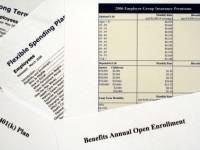When a board of directors decides to enter the company into a change-of-control transaction, the board is charged with the duty to act reasonably to secure the best value reasonably attainable for its shareholders. As the Delaware Supreme Court put it in its seminal decision in Revlon, Inc. v. MacAndrews & Forbes Holdings, in the change-of-control context, the directors’ role changes “from defenders of the corporate bastion to auctioneers charged with getting the best price for the stockholders at a sale of the company.”
But is an “auction” of the company always necessary to comply with this duty? No – there is no bright-line rule that directors must conduct a pre-agreement market check or shop the company. Delaware courts have repeatedly emphasized that there is no single “blueprint” that a board must follow to fulfill its duties in connection with a change-of-control transaction and, in fact, a board may pursue a single-bidder sales process so long as it has reliable evidence with which to evaluate the fairness of the transaction without an active survey of the market and retains flexibility to consider potential topping bids after the merger agreement is signed.
That is not say that a single-bidder approach will always pass judicial muster, as demonstrated in Koehler v. NetSpend Holdings, Inc., a recent case in which the Delaware Court of Chancery found that NetSpend’s directors acted unreasonably by not engaging in a market check before agreeing to sell the company. The court in NetSpend acknowledged that a single-bidder process is not unreasonable per se, and found that the board’s initial decision to adopt a “not-for-sale” strategy that sought to maximize value by inducing the sole bidder to bid against itself was reasonable. According to the court, however, the board’s approach to the transaction was not reasonable. In support of this finding, the court pointed to a “weak” fairness opinion, as well as acquiescence to potentially preclusive deal protection provisions, including a “No-Shop” clause and “Don’t Ask-Don’t Waive” provisions that precluded NetSpend from waiving any standstill agreement without the buyer’s consent. These factors precluded an effective post-agreement market check to assess the fairness of the deal price. READ MORE →









